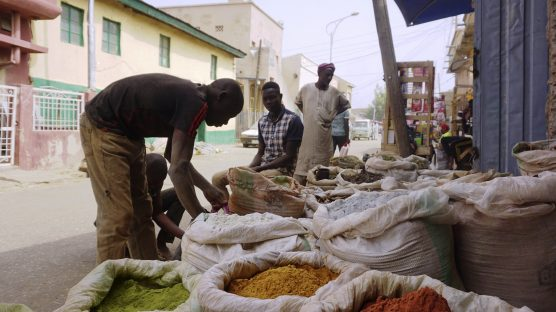The informal retail sector represents almost 40% of all retail in Sub-Saharan Africa. This vibrant market is innovative in meeting the requirements of its consumers, especially when it comes to meeting ever more stretched pockets.
From loosies (single cigarettes) to small tablespoon bags of sugar, coffee, atchar, sweets and more, retailers find a way to break apart manufacturers’ packs to meet consumer needs. In South Africa, Parafin is sold out of big blue buckets into reused soft drink bottles that are provided by the spaza owners, and in East Africa and South East Asia – cooking oil follows a similar model.
At the same time, a large amount of packaged goods sold leads in these communities ultimately ends up as packaging waste. -. Small packaging sizes or sachets have little value to offer waste pickers, even if recyclable – leading to increasing volumes of waste. A lack of municipal services in these communities often means that rubbish piles up and ends up in waterways. Plastic waste is therefore far more harmful at the bottom of the pyramid than at the top.
The market opportunity to provide low-cost dispensing solutions exists. It solves both a sales growth challenge and a packaging reduction challenge at the same time. The challenge is how to operationalise it.
Smollan has co-created with dy/dx digital, a leading global product design consultancy, the Smartfill dispensers to meet this opportunity. Through many iterations, the smart dispensers have been proven in the spaza market to not only grow sales volume by offering small pack sizes but also to provide valuable data on the quantities consumers purchase the brands’ products in when given the choice. By offering low purchase volumes that cannot be affordably manufactured at scale, brands can tap into new customers and new uses.
“In Tembisa we grew sales over 400% and the number of purchasing transactions by 450% per month,” Says Marc Wetselaar, COO of Smartfill. “People gravitated towards the dispensers and understood the concept easily. Packaging was not an issue as we provided dry goods and customers used paper bags for their purchases.”
While technology is a key ingredient, it is only part of the solution. “Smollan has been increasingly focused on our sustainability and how we can support our clients in theirs,” Says Michael Smollan, Chief Growth Officer of Smollan, “Smartfill is a part of our solution offering to assist brands to transition to more environmentally conscious packaging options while still growing their business.”
As brands look for continued sales growth and try to solve packaging waste, an answer may just lie within the informal trade.



